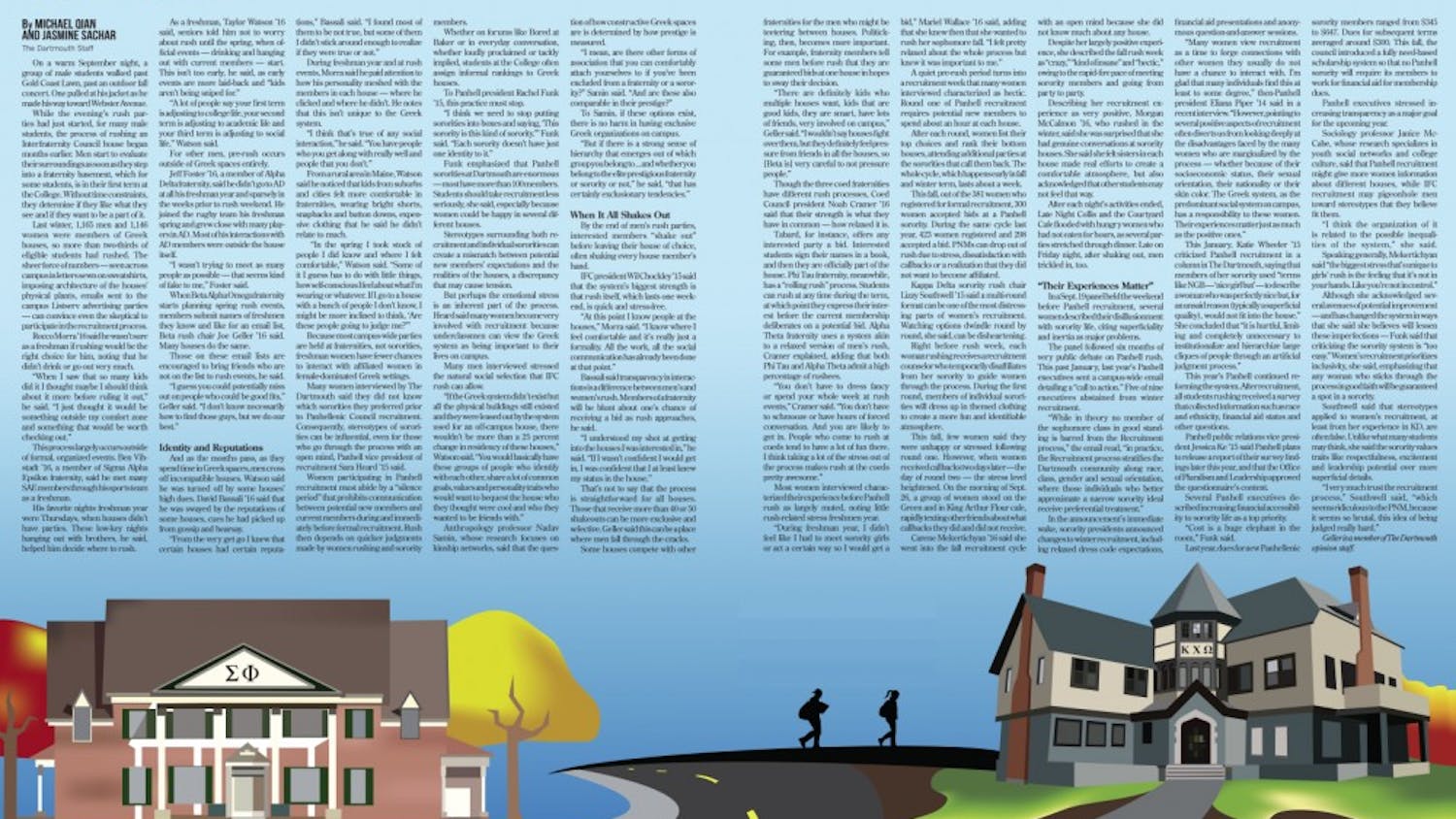Leslie Gordon ’79 founded the College’s first sorority — Sigma Kappa sorority, now Sigma Delta sorority — during her sophomore year in 1977, only four years after Dartmouth started admitting women.
At the time, Gordon said she felt that women often did not have their own space on campus.
“When we arrived, it was the third or fourth class of women of coeducation, and it felt a lot like we were guests and sometimes unwanted guests in the social scene at Dartmouth,” she said.
After hearing other women talk about possibly bringing a sorority to the College, Gordon said she decided to go through with the process. Her decision to start a sorority, she said, was not meant as an “angry statement” against the social scene at Dartmouth.
She said she reached out to several sororities and decided on Sigma Kappa because the organization showed the most interest.
Kate Laud ’80, who was in the founding class, said that Sigma Kappa’s members struggled to gain recognition from other national sororities. She said that every other sorority that the founding members reached out to told them no.
“Sigma Kappa was the only one willing to take the risk,” Laud said. “They had no fixed reputation. Some of the others felt that opening a chapter in New England might not work.”
Catherine McGrath ’80, who was in the sorority’s founding class, said that the first year of rush was “sort of bizarre” because potential members had to be selected by the national organization. She said that after the first year the rush process became more normalized, especially after Kappa Kappa Gamma sorority joined the College in 1978.
McGrath said she became involved in Sigma Kappa because she wanted more control over her social life.
“We were tired of always being guests, going to parties where we had no influences,” McGrath said. “We wanted to see something just with women. Socially, we’d like to host parties once in a while.”
In its first year, the chapter had around 60 members.
Early members said that while some men on campus were unfriendly, they generally had a good relationship with the College’s fraternities.
Most fraternities would co-host events since Sigma Kappa did not have a physical plant when it was founded, Gordon said.
McGrath said that Beta Theta Pi fraternity even allowed Sigma Kappa to use its house for the first official bid night.
Laud said that most fraternity members treated Sigma Kappa members as friends and that they were allowed to participate in the Interfraternity Council.
Gordon said that the creation of Sigma Kappa ended up being political, although she did not intend it to be, because it underscored some problems the College faced with coeducation.
McGrath said that a turning point in Sigma Kappa’s relationship with the other Greek houses was when members took part in Hums, an annual Green Key tradition during which fraternities would sing songs they had created, in 1977.
“The first year we joined, some fraternity men were shocked, and some were sort of proud,” she said. “We had some pretty witty songs that were not raunchy but funny. It changed the tone of Hums.”
Later, McGrath served as a Hums judge. She said that members on the judging committee loved Sigma Kappa’s performance and that receiving the approval of community members she respected was a moment she strongly remembers from her time at the College.
Maren Christensen ’83, who joined Sigma Kappa in 1982, said that once Sigma Kappa got a physical house, its members would host parties.
“I hung out with plenty of guys in Beta, and they were always happy to come to our house and party since we were buying beer,” she said.
Laud said that the early members of Sigma Kappa found some of the aspects of being in a national sorority, specifically the rituals, silly and a little over the top.
“We endured it,” she said.
McGrath said that she found the control that the national organization wanted “ridiculous.” She also said she did not enjoy that many of the rituals they had to do were very Christian-oriented.
“I thought that was bizarre given that many women in our sorority were Jewish, including the founder,” she said. “A lot of national rituals were quite meaningless to us. “
Beyond the national traditions, the women in Sigma Kappa created their own.
McGrath said that one tradition they began was a breakfast-in-bed fundraiser, during which community members ordered breakfast that would be delivered to them.
The early members said that they were glad they joined Sigma Kappa because of the relationships they developed.
Christensen said she has stayed in contact with other women from Sigma Kappa, although she has not stayed closely involved with the current house.
“My best friends were all in Sigma Kappa,” she said. “We try to get together every year.”


